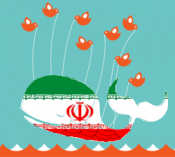 Novamet Specialty Products Corporation recently agreed to pay $700,000 to the Bureau of Industry and Security (“BIS”) for 15 unlicensed shipments of nickel powder worth about $80,000. According to the charging documents, the powder was classified as ECCN 1C240.a. It does not appear from the charging documents that the violation was voluntarily disclosed by Novamet to the United States.
Novamet Specialty Products Corporation recently agreed to pay $700,000 to the Bureau of Industry and Security (“BIS”) for 15 unlicensed shipments of nickel powder worth about $80,000. According to the charging documents, the powder was classified as ECCN 1C240.a. It does not appear from the charging documents that the violation was voluntarily disclosed by Novamet to the United States.
You may wonder why such a large fine for nickel powder. Well there is a partial answer to that, and the hint to the answer is the picture of the Oak Ridge gaseous diffusion uranium enrichment facility that illustrates this post. Gaseous diffusion enrichment requires a barrier that is used to separate isotopes of uranium, the goal being an output of fissionable uranium such as U-235. Apparently sintered nickel powder serves this purpose well. Sintered powder is powder that has been formed into a mass by high temperature and pressure alone without melting the powder. After this process, nickel creates a solid porous structure that permits the right isotopes to pass through and the others to stay behind, although it requires a multi-step cascading procedure. Sintered nickel powder was used as such a barrier in the gaseous diffusion plant at Oak Ridge.
Barrier technologies are, naturally, classified. But the description of ECCN 1C240.a probably gives a potential nuclear proliferator a good head start in developing a sintered nickel powder barrier. To be controlled under that ECCN, the nickel powder must be 99.0% pure and must have a mean particle size of less than 10 micrometers. I didn’t check each of the Novamet nickel powder exports alleged by BIS but five of them involved Novamet’s 4SP-10 powder, which judging from this specification sheet falls well within the parameters of ECCN 1C240.a.
That being said, and with requisite acknowledgment that this product could be used in uranium enrichment, there is certainly a foreign availability issue to consider here. The U.S. doesn’t mine or produce significant quantities of nickel. Russia is the largest producer, followed by Canada, Australia, and Indonesia. And nickel powder isn’t controlled under the Wassenaar Arrangement meaning that these countries can freely export nickel powder meeting the specifications described in ECCN 1C240.a. So, a $700,000 fine against Novamet seems far in excess of any injury that the exports might have caused.
UPDATE: Ed Fox, from DOE’s NNSA, points out in the comments that nickel powder is controlled by the Nuclear Suppliers Group. Indeed, it is listed on that group’s Guidelines for Transfers of Nuclear-Related Dual-Use Equipment, Materials, Software, and Related Technology under Category 2.C.16.a. That would prevent exports by Russia, Canada and Australia of nickel powder to certain countries. Singapore, another major producer of nickel, however, is not a member of the Nuclear Suppliers Group, although I can’t determine whether it has manufacturers who export nickel powder.
[P.S. The brief I mentioned earlier as my excuse for not posting more has been filed, so I should be on a more regular posting schedule.]

 Posted by
Posted by  Category:
Category: 

 I’ve received some emails from irate subscribers demanding their money back (to steal a joke from Jim Bartlett) due to the paucity of postings lately. Kinder, gentler readers have expressed concern as to whether I have been kidnapped. To the first group, I say, your refund check is in the mail. To the second, I say, I have a brief due this upcoming Monday on an export issue before the U.S. Court of Appeals for the D.C. Circuit, and it’s been taking up mountains of time. Posting should be back to normal next week.
I’ve received some emails from irate subscribers demanding their money back (to steal a joke from Jim Bartlett) due to the paucity of postings lately. Kinder, gentler readers have expressed concern as to whether I have been kidnapped. To the first group, I say, your refund check is in the mail. To the second, I say, I have a brief due this upcoming Monday on an export issue before the U.S. Court of Appeals for the D.C. Circuit, and it’s been taking up mountains of time. Posting should be back to normal next week.
 Last week several readers brought to my attention a Bloomberg story that announced in its headline “
Last week several readers brought to my attention a Bloomberg story that announced in its headline “

